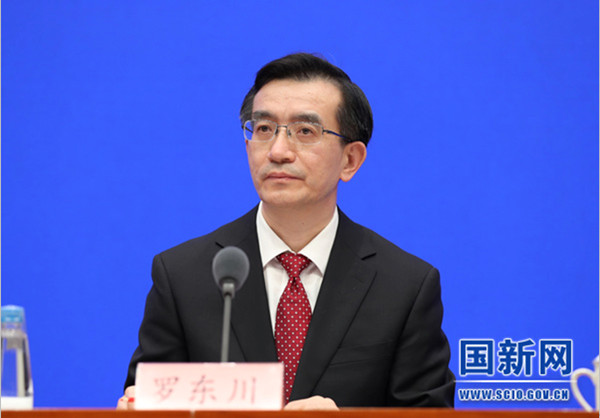SPC Vice President Luo Dongchuan Proposes Enhanced Damages to Tackle with IP Infringement with Malice

Mr. Luo Dongchuan, Vice President of the Supreme People's Court and Chief Judge of the IP Court [Photo/kfyzwh.com]
The Supreme People's Court or the SPC is currently drafting comprehensive judicial interpretations on punitive damages against IP infringement, according to Mr. Luo Dongchuan, Vice President of the SPC and Chief Judge of the Intellectual Property Court of the SPC or the IP Court, who was interviewed by Southern Metropolis Media during the plenary sessions of the National People's Congress and the National Political Consultative Conference. The said interpretations are supposed to provide detailed articles to define the circumstances where punitive damages shall be applied to enhance the compensation standards. Justice Luo added that the IP Court will impose punitive damages according to law with reasonable initiative, e.g. in cases of severe IP-infringement consequences and repetitive IP infringement, as an effort to strengthen the judicial deterrence against IP infringement, better match the damages and the market value of intellectual property, and hence effectively protect the IP owners' legal rights and interests.
Justice Luo pointed out that the average trial duration of technology-intensive IP cases, i.e. the length of time from case filing through case conclusion, as one of the litigation feedback factors that concern the relevant sectors and industries, is relatively longer than civil cases in other categories. To deal with this time issue, the IP Court has put into place a set of systematic measures, such as bifurcation of cases on the basis of their sophistication level for more efficient allocation of judicial resources, and merged hearing of civil IP case and its affiliated administrative one to avoid long-term waiting period as incurred by separation of two proceedings and hearing of two appeals in sequence as the judicial practice used to be in the past.
Besides, the IP Court has also set up a national pool of technical investigation officers for the courts all over the country to share the resources and capacities in terms of technical fact finding, so as to shorten the timeframe in particular where the case involves sophisticated technology issues. The technology-intensive cases as filed with the IP Court can be regarded as a barometer of innovation, and hence the IP Court needs to ensure that the patents for inventions with genuine inventiveness can be granted as soon as possible and protected as claimed in a timely manner, so as to encourage innovation and improve business environment in China. In the meanwhile, the IP Court also provides its judicial protection over cross-category intellectual property on a proportionality basis, i.e. the IP protection intensity shall conform to the inventiveness of the technology at issue.
Justice Luo also said that technology development constantly brings about challenging legal issues and expands the boundaries of law application. Under such circumstance, judges need time and practices to tackle with these upcoming new issues with harmonized thoughts and basic consensus under the general principles of prudence and reasonable tolerance, and ultimately to solve these issues in a step-by-step manner. As regards new technology, new products and new business models, the courts are not supposed to be hasty in coming up with quick solutions, but instead should first conduct in-depth analysis on their very nature to ensure the final law application may promote innovation, fair competition and customer welfare.
Justice Luo stressed that the IP Court will focus its efforts on further improving IP protection efficiency, innovation of adjudicative rules, and enhancement of damages to deal with the cases involving core technology of the enterprises in particular in the sectors concerning pharmaceuticals, telecommunication, animal genes, smart keyboard-input method, computer software, etc. He also mentioned that the IP Court's exploratory hearing of an appeal on interlocutory judgment well established the system to parallelize interlocutory judgment and injunctive relief, which is also the IP Court's kick-off case, i.e. Valeo v. Lukasi et al, as gaveled by Justice Luo himself and co-heard by his fellow judges in the collegial panel upon the establishment of the IP Court.
As introduced by Justice Luo, there are totally 32 high courts and 44 intermediate courts across China to hear technology-intensive IP cases of first instance. In accordance with the decision of the Standing Committee of the National People's Congress, the IP Court has the jurisdiction over two general types of cases, i.e. civil cases and administrative cases, either of which covers all disputes arising out of technology-related intellectual property ranging from patent, plant variety and integrated circuit layout to technical secret and computer software as well as antitrust disputes, which actually refer to almost all types of IP cases except for trademark cases. Such a jurisdictional structure has laid the foundation for coordinating and harmonizing civil judgments and administrative ones in technology-intensive IP cases.
